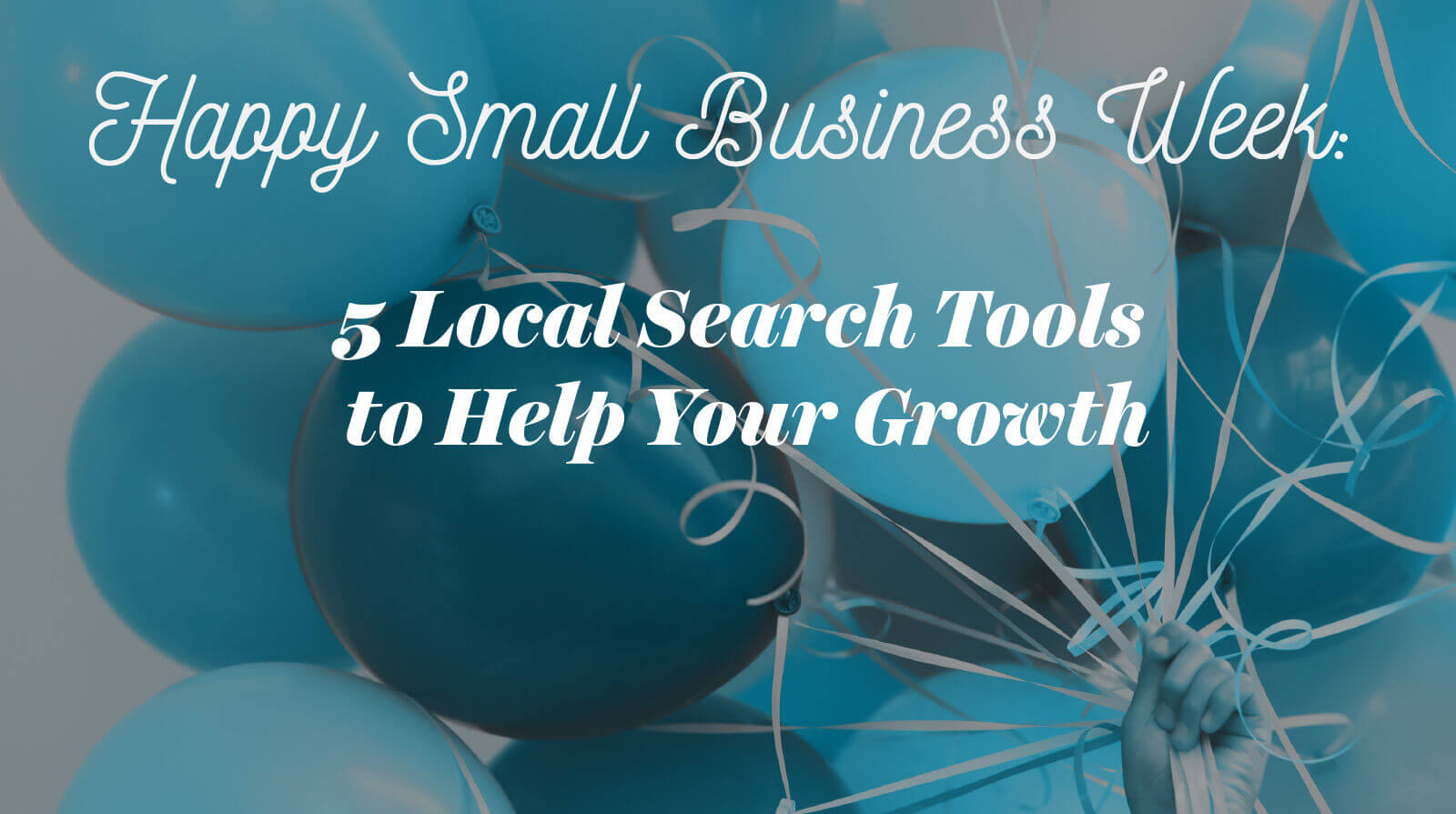
If you’re like most small businesses, you rely on your community and local visitors to keep your business going. For you it’s important to stay relevant in your community, with your customers, and especially with local searchers. To do so you might find the amount of things you have to do to be a little bit daunting.
The truth is, that there are a number of great tools at your disposal, many of which are free. These tools can help you with map search, local search, and social media. Combined they can help your small business stay relevant and be in better shape for Small Business Week next year.
Google My Business
Google My Business is a great tool for small businesses that are just getting started in putting down their digital footprint. GMB gets you listed in maps, which allow for reviews and images to be posted to your listing.
As you grow you’ll want to encourage your customers to rate you on Google. This will not only look great for your online reputation, it has impacts on search rankings for your business.
HootSuite
If your small business is planning on using multiple social media accounts, HootSuite can help you streamline that process. It can also be used as a great social reputation manager. Being able to respond quickly to customer reviews, messages, complaints, or praise will help you keep folks happy.
HootSuite has several paid plans for larger businesses, but for small businesses who will only have one user – you can use the service for free. As you add more employees that might be managing social media, you can always move up.
Yext
Yext’s goal is to ensure your business is accurately listed in as many popular directories as possible. This is especially needed when if you move your business or haven’t been around a long time in order to get your listings populated organically.
While the service does have a cost, the benefit of having accurate listings, both for the user and the search engines far outweigh that. It may be hard to believe that not everyone uses Google for everything, but sadly, that’s the case. So if you need to make sure your listing house is in order, spend a few minutes and some money to make sure that it is.
Google AdWords (Keyword Planner)
When you first launch a website, getting traction can be extremely difficult. This is especially true if you’re in a competitive space, such as restaurants, so what’s a small business to do? One way to drive new traffic is through purchasing the keywords that are important to your business. Adwords helps you quickly get traffic to your website to help you get new leads while you grow your organic traffic.
The other thing that it helps you do (and this doesn’t cost you money) is help you determine the value of your keywords. If you’re looking to rank for a specific thing, you can see the traffic in your local area by using Google’s Keyword Planner. This will help you determine if targeting these keywords on the page is worth it.
Whitespark
Whitespark works in a similar fashion to Google’s keyword planner, but it also gives you some insights into what your competitors are doing online. It also will help you get information on what things your website should be doing to help you boost your ranking signals.
For small business owners they do offer a free plan. This will give you a few searches a day to test your pages or your content and help you make changes. 3 searches may not seem like much, but when you’re also trying to run a full time business, it will probably be plenty.
Conclusion
With all the things that go into running a small business, marketing can sometimes take a back seat. If you’re solopreneur, it can almost seem like it’s impossible to market your business in such a competitive place. The truth is, that if you’re thinking of that, than probably most of your competition is too. So the fact that you’re looking for ways to beat them gives you an advantage already.
No, you can certainly make headway online, and with these tools it’s easier than you think.






